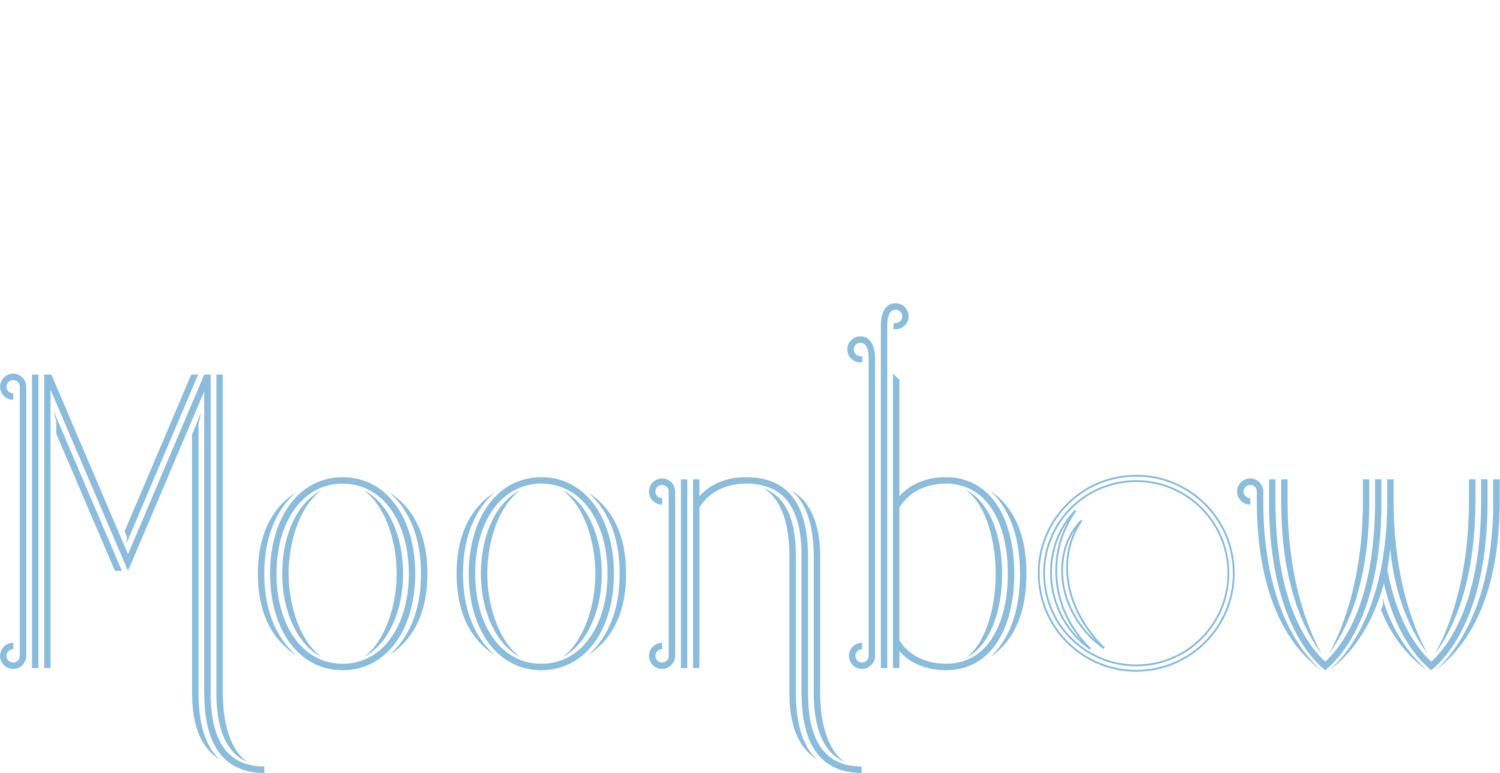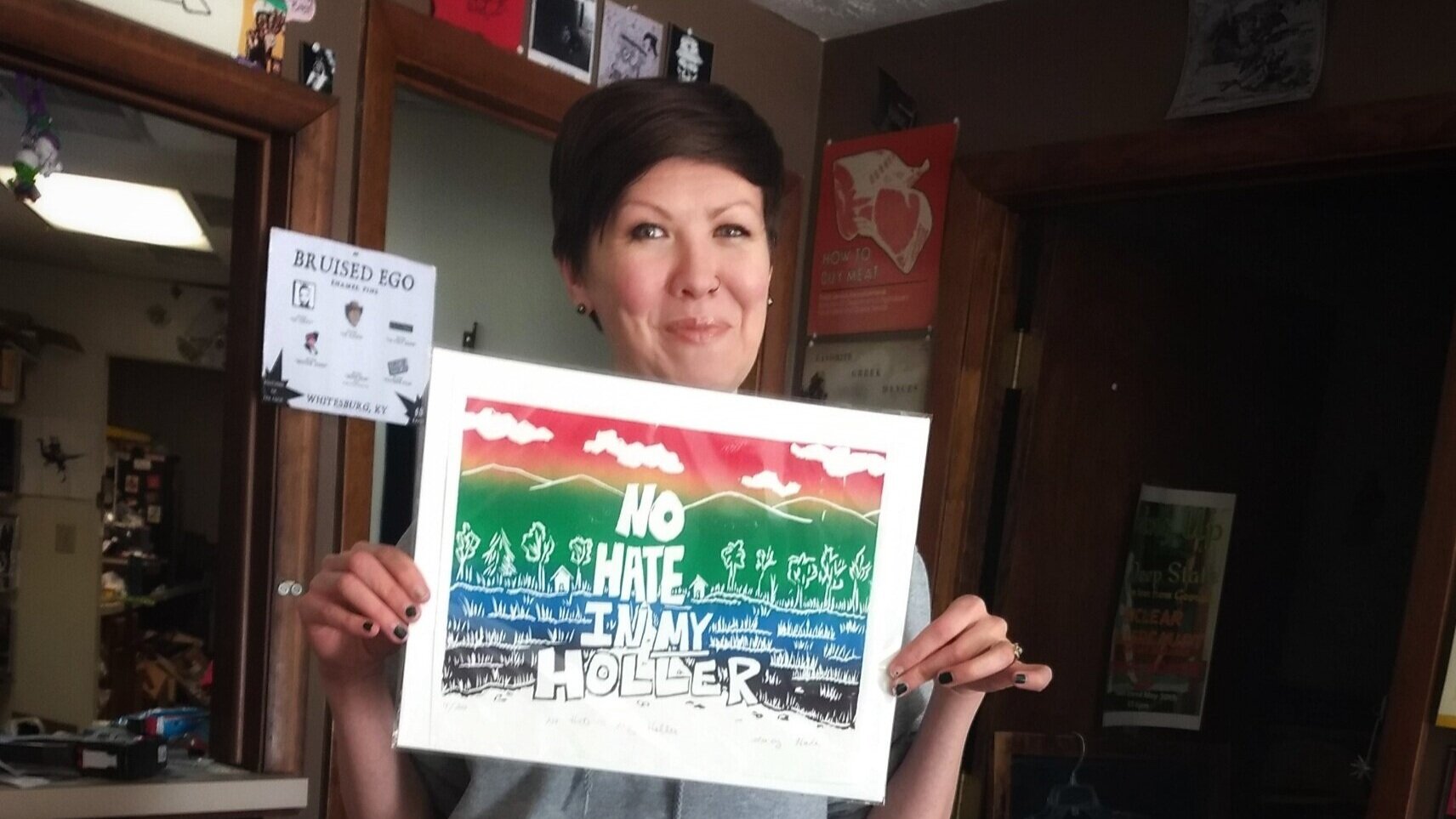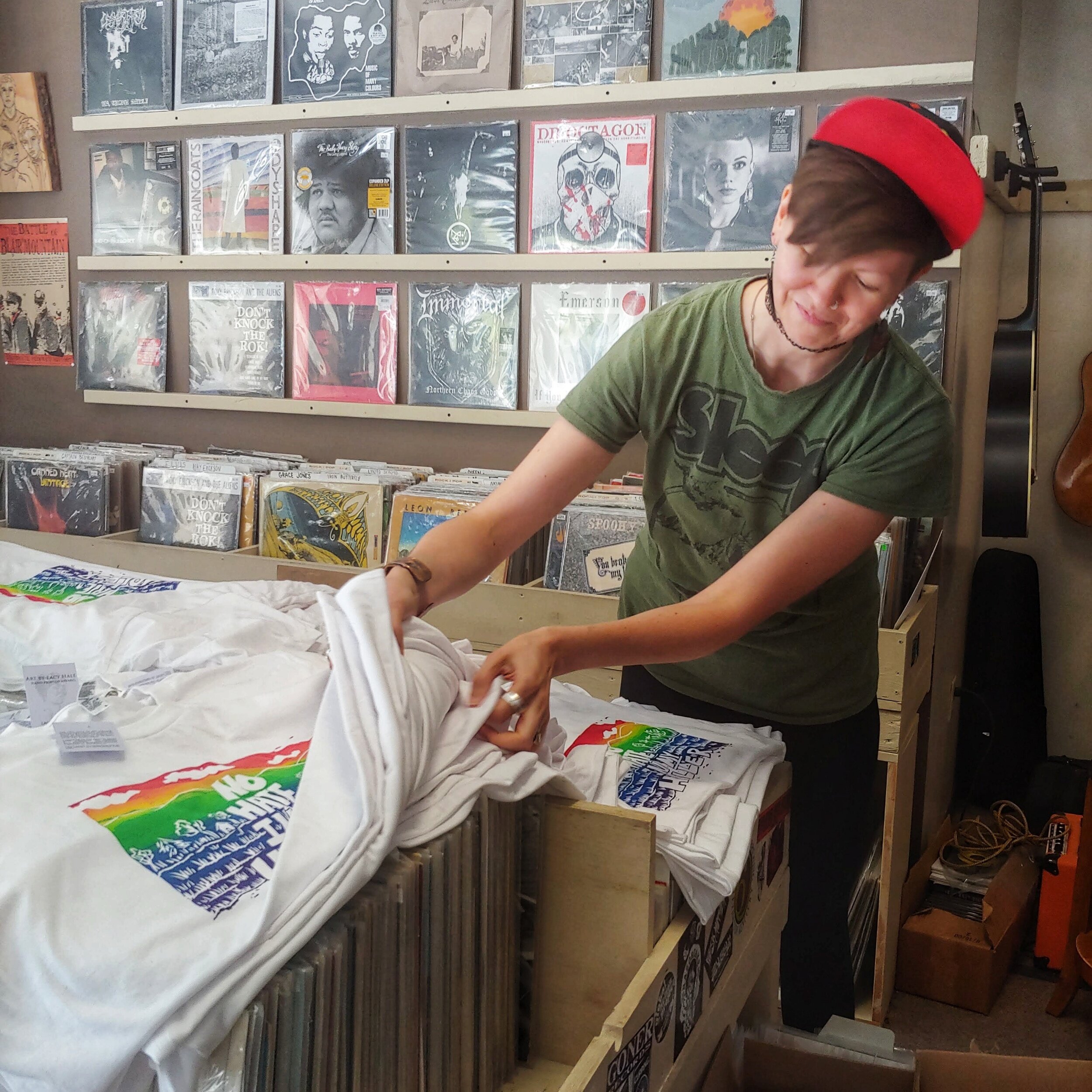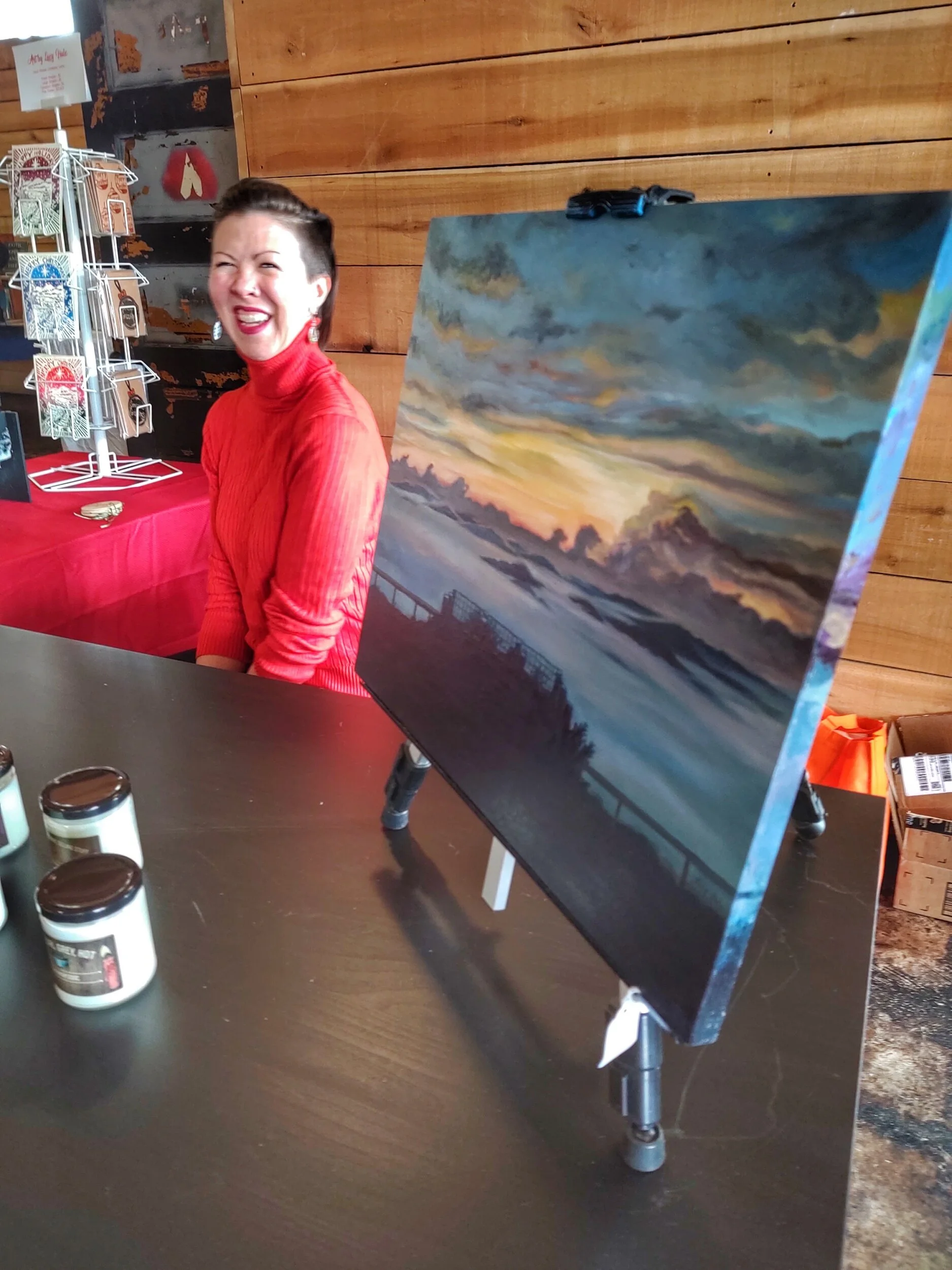Lacy Hale is an artist who at once embraces her Appalachian identity while simultaneously defying stereotypes that are often put on the region. She is a native of the rural coalfields of the Kentucky mountains who left home to study art at the Pratt Institute in New York before returning home to work as an artist and arts educator. At the core of work is a commitment to community that extends to being co-owner of Roundabout Records, a music store on Main Street in downtown Whitesburg. But as 2020 has unfolded, her commitment to community has expanded beyond the region to embrace the challenges of our times. She has created new lines of masks that feature her art, raised money to support causes central to the Black Lives Matter movement, and set the rallying cry for anti-bigotry in the region with her iconic “No Hate in My Holler” work.
We are excited to share with you today more about Lacy because she will expand your idea of what it means to be Appalachian. Lacy shows that being Appalachian can include embracing social justice causes and recognizing the terrible effects of racism. Being Appalachian can include raising money for others, no matter your own needs or those next door. Appalachians represent all manner of political persuasions and opinions, and the are not a group that can be simplified by voting trends. In deconstructing the Appalachian monolith, we might have no better heroine to guide us than this incredibly talented artist.
No Hate in My Holler
Recently a picture of a protester in Hazard, Kentucky went viral: the man was holding up a sign that read “No Hate in My Holler.” This logo captures the rural spirit of inclusivity, so it is no wonder that it struck a chord.
The original “No Hate in My Holler” print made through a youth program at Appalshop in Whitesburg. Learn more about this important non-profit serving the mountains for 50 years by clicking the link below.
Isn’t it nice to know that “No Hate in My Holler” has a longer history? Lacy first created a design emblazoned with the slogan in February of 2017. At that time, the KKK had planned a rally in Pikeville, in part to recruit new members. A group of young adults and artists were determined to set clear opposition to the group. Lacy was working at Appalshop, an art and media non-profit, and led a makers workshop for local youth that centered on protest art to respond to the event. Surrounded by Appalachian youth, she created her no-iconic design while demonstrating print-making techniques.
The first “No Hate” merchandise pickup in 2017
I had the great fortune of visiting Lacy at Appalashop right around that time. To see her working with local youth at the Boone Drop-In Center was one of those sights that you wish that everyone could see. Although the organization hires coordinators from all around the country, the youth participants were glued to Lacy. They clearly adored her. Those of you who know her personally know that she has a quiet and unassuming nature. I had come to pick up two of her paintings as start of our initial gallery, and these beautiful pieces were tucked to the side. Instead of calling attention to herself or her paintings, she was hanging out with the young adults, setting a clear and simple example of how to be a community leader. With her, it is always through action, without any expectations for praise or monetization, and without making demands of others. To see her in action was to realize what a precious gift she gave the participants.
Over time, both the artwork that inspired “No Hate in My Holler” and her actions have evolved. The original piece had a hashtag that responded directly to Nazism. Lacy took away the hashtag and experimented with different techniques. When printed with rainbow ink, the message of inclusivity extended beyond anti-KKK efforts and into creating a society that is also accepting of LGBTQIA+ folks. Here at Moonbow, we began selling Lacy’s “No Hate” goods from the beginning, and I am proud to report they are the #1 selling item of all time in our Corbin store and online. We have sold literally hundreds of shirts along with prints and tote bags. Not so long ago, author Silas House wrote specifically about those shirts in Time Magazine, and how they represented a change from the place where he grew up, and was literally threatened with his life because he was gay.
Community Leader
Lacy on a scissor lift, installing a panel of the Petunia Possum mural in downtown Harlan as part of the Mega Mountain Mural Fest led by the Appalachian Program at Southeastern Kentucky Community and Technical College. One of the key organizers, Robert Gipe, is assisting with the roller.
As these changes and evolutions began with this simple piece of art, so has Lacy changed and grown in the way she has served the community. I am among the many who admire Lacy’s paintings. They capture the drama of the light among the high and narrow ridges that you really only find along Black Mountain and Pine Mountain in Harlan and Letcher County. There is a dreaminess, punctuated by the golden of light. Dreams play a big role, as do trees and birds and the natural world. And it turns out that these qualities translate very well in a larger scale, and specifically as murals.
The finished mural is on the historic building that now houses Sassy Trash—a must-see shopping destination in Harlan
Lacy has created murals everywhere from Lexington to Hindman, as well as facilitating community projects where she has worked with school children and collaborated with other artists. I once came across her in Jenkins, helping the artist Pam Meade block in large color swatches on a mural that sits opposite of Hardees. When a group out of Southeastern Kentucky Community and Technical College received a grant to help train young artists, Lacy has been involved from the beginning. Through the Mega Mountain Mural Fest, she led the creation of my most favorite mural ever, Petunia the Possum, who hangs saucily upside down on the side of the historic building that now houses Sassy Trash in downtown Harlan (Sassy Trash is an amazing place led by a wonderful woman entrepreneur, April Collins, but that is a story for another time). Surrounding the possum are native species, including a blue-tailed skink and goldenrod. The possum is eating poke berries, a species that is poisonous to humans (and is known to be intoxicating to birds), but safe to both possums and the people who know how and when to eat poke. I think it captures the fun and unexpected nature of Appalachia perfectly; the adaptations to nature that are part of our cultural traditions and make an otherwise harsh environment home.
I had the pleasure of presenting the Eastern Kentucky Artist Impact Award to Lacy
But, as you might imagine, murals were just a small part of her work. Lacy spent dedicated years on the Kentucky Arts Council, and helped found and run organizations from EpiCenter Arts to Appalachian Women of the Arts. She gives generously of her time, mentoring youth and helping children who want to be an artist. She is an integral part of the regrowth of downtown Whitesburg through the record store she runs with her husband, Ben. From the outset, she donated proceeds from her “No Hate” work to non-profit causes, no matter how lean times were for her. On November 8 of 2018, I had the great pleasure of presenting Lacy the Eastern Kentucky Artist Impact Award at the Mountain Women Mean Business conference.
No Hate Meets 2020
This year has been incredibly difficult, from a global pandemic to incredibly savage acts of racism that have led to the deaths of Black people. Who hasn’t had a moment of deep fear, worrying that they, or the people they love, might die from this new and unknown virus? Who hasn’t heard of George Floyd calling for his mother as he lay dying and hasn’t felt their heart break? Lacy has risen to this moment, giving us art to guide us through these rough times. She has done online demonstrations and created a free coloring pages for all the school children who suddenly found themselves home from school. She has captured Governor Andy Bashear’s daily addresses and used the to adorn everything from mugs to tote bags. She has hand-pressed block prints to masks. She has given away block-printed greeting cards so they can be used to thank essential workers.
Lacy packaging “No Hate” shirts in Roundabout Records. She raised $2,500 for the Black Visions Collective and the Louisville Community Bail Fund through selling her merchandise. Links to these organizations are below if you are interested in donating as well.
But it was the Black Lives Matter movement where she has really shown herself as a model of how to move forward. As rural people around the country came together to show solidarity against racism and search their own hearts for ways to create a more equitable society, “No Hate in My Holler” has become, in the words of the Daily Holler, a battle cry. And no wonder. Read Lacy’s words from 2017, which feel so prescient for today:
“The news has been so overwhelming, so discouraging, so disturbing. I couldn’t imagine being a person of color living around these things, hearing this stuff happen. Even before this, I know it was hard and has been hard for people to live here, but I just couldn’t imagine what some people have to go through. You hear white privilege a lot. I know that even though I grew up poor, I had that. I’m a white person living in this country and this world.”
The death of Breonna Taylor here in Kentucky was a moment that pushed her to action. Lacy opened a 2-week ordering window for “No Hate” pieces on her Etsy store and donated 75% of profits to Black Visions Collective and the Louisville Bail Fund in memory of Breonna Taylor. In that window of time she was able to raise $2,500.00. And then, on Juneteenth, she made another donation to Black in Appalachia, another showing of her solidarity and willingness to give of herself to support others.
Art for All
Lacy’s artistry and passion is something we can all admire. And, although she is a fine artist whose paintings are worthy of collection, she also has many pieces that are accessible for all of us. Along with art and prints, she sells hand-printed t-shirts and tote bags, as well as enamel pins and stickers. Her greeting cards are hand-printed and worthy of popping in a frame once they are received. Some of her paintings are haunting, but many of her pieces are playful, giving us a chance to share a love of Dolly Parton and possums, for example. You can also enjoy the current edition of Still, a literary journal that currently has her as the featured artist. In a time when so many of us are looking to support individual makers and small businesses, do yourself a favor and check out her work. You are certain to find pieces that you want for yourself, as well as to gift to others.
We currently have this painting of Lacy’s at Moonbow in Corbin. Please contact us if you are interested.
Sky and Geoff Marietta are passionate about rebuilding Main Street businesses in Appalachian Kentucky. Look for some of our blog posts below, or find out more about our start here.
Here is a bonus since you scrolled all the way to the bottom: these are the two paintings I picked up from Lacy at the Boone Youth Drop-In Center just before the birth of “No Hate in My Holler”




















